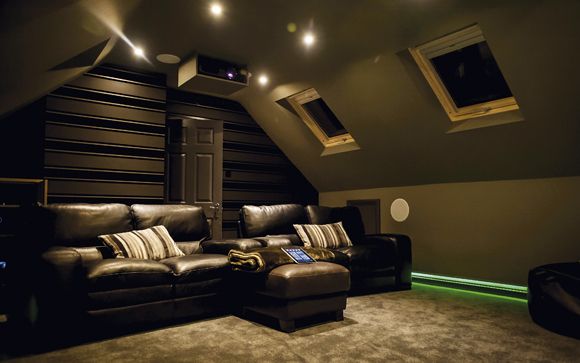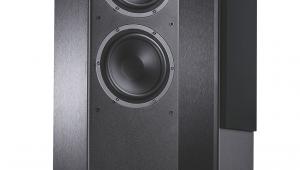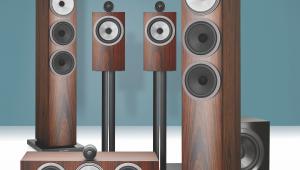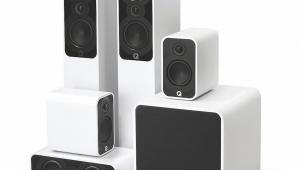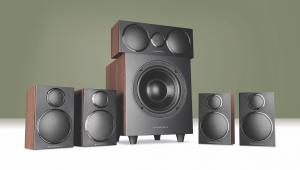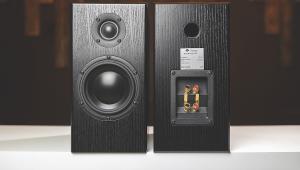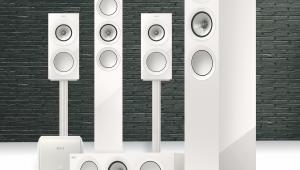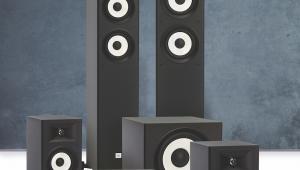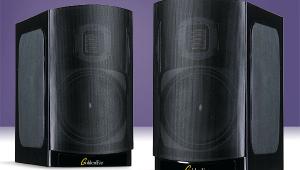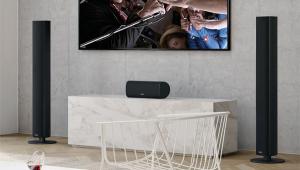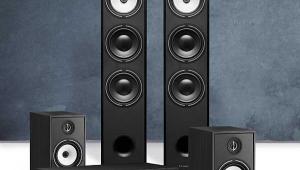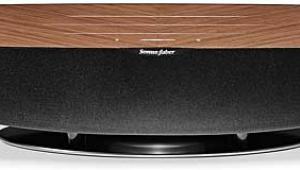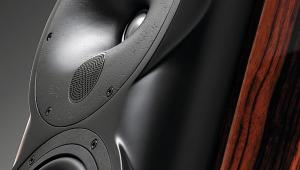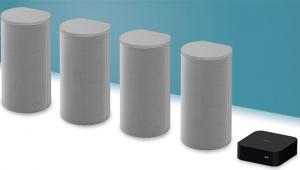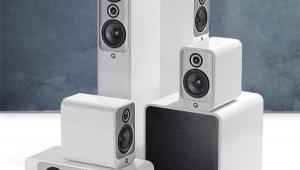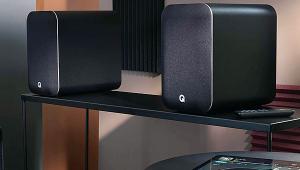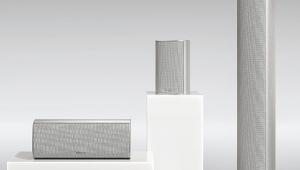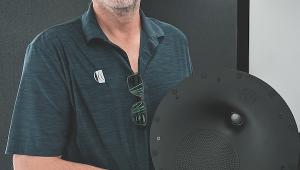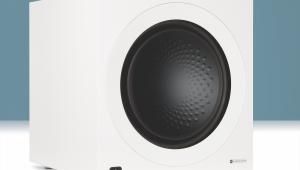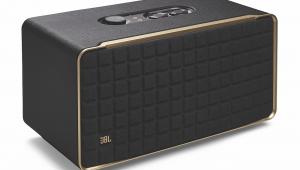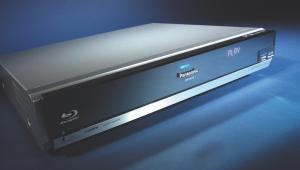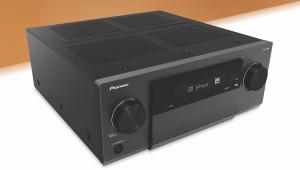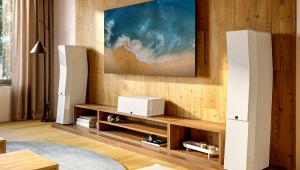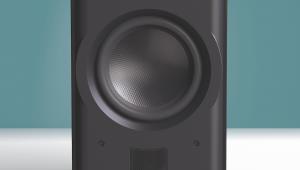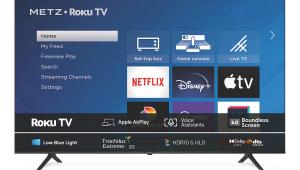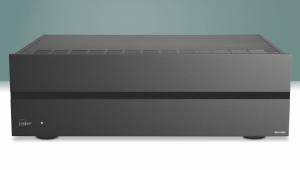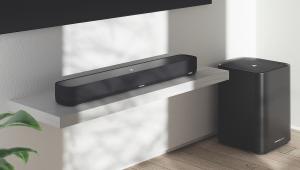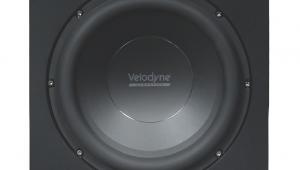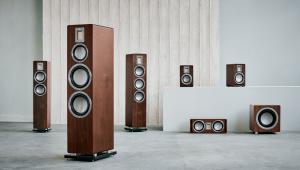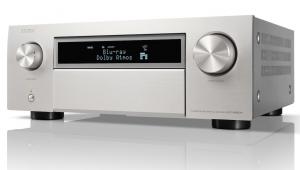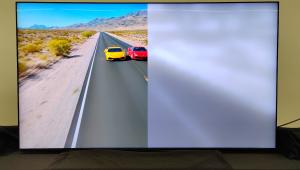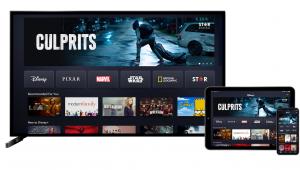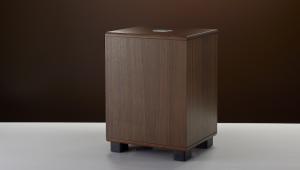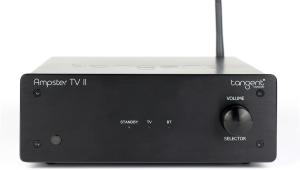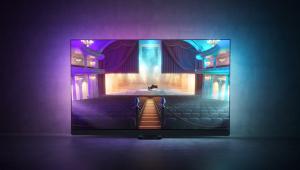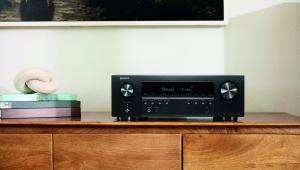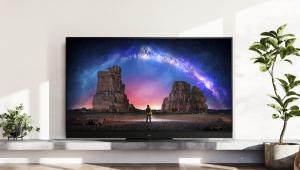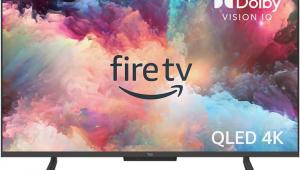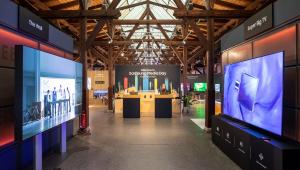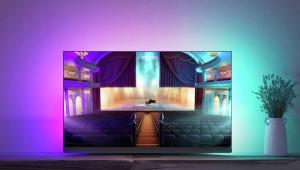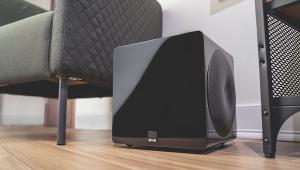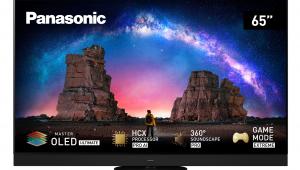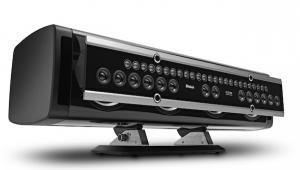Dynaudio Music 7 wireless speaker review
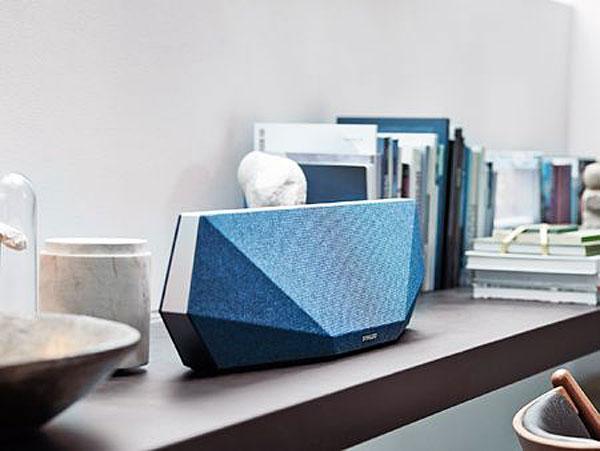
 Denmark-based Dynaudio has a legacy of making loudspeakers for recording studios and homes, but last year created a stir by announcing the imminent arrival of four new ‘intelligent’ wireless music systems, known simply as Music. Included in the now-available family are four pieces ascending the scale in price, performance and size (namely the Music 1, 3, 5 and 7), with the most versatile and feature-rich, the Music 7, reviewed here.
Denmark-based Dynaudio has a legacy of making loudspeakers for recording studios and homes, but last year created a stir by announcing the imminent arrival of four new ‘intelligent’ wireless music systems, known simply as Music. Included in the now-available family are four pieces ascending the scale in price, performance and size (namely the Music 1, 3, 5 and 7), with the most versatile and feature-rich, the Music 7, reviewed here.
The most striking facets of the Music 7 speaker cabinet are its considerable 80cm width and expensive-feeling 7.7kg weight. This angular speaker also oozes a hip design aesthetic; wherever you choose to park it, it'll draw some attention to itself. My sample came wrapped in an inoffensive light grey finish, although the removable fabric grilles fashioned by Danish textile house Gabriel are also available in dark grey, red and blue.
On the bottom side of the Music 7's housing are HDMI (for use with ARC) and digital optical audio connections, plus a 3.5mm input jack for analogue sources. A tiny pinhole adjacent to the HDMI port allows a factory reset using the end of a straightened paperclip.
For those looking to play without wires, Wi-Fi is supported, as is aptX Bluetooth.
Removing the front grille reveals six MSP cone drivers. There are two 1in tweeters, two 3in midrange units (both of which are angled slightly off-axis and outwards towards the left and right of the room), and two 5in woofers, angled upwards in line with the sloped cabinet fascia. Dynaudio claims the Class D power amplification for each driver is 50W.
A stereo pair of Music speakers can be established, as well as a multiroom system of up to 16 units across six 'groups'.
The Music 7 manual suggests immediately downloading the combined Dynaudio + TIDAL app (a free nine-month subscription to the streaming service is bundled) onto an accompanying Android or iOS device. Adding the speaker to a home Wi-Fi network is intuitive and app-based instructions guide you through simple steps. The app is critical for controlling the speaker’s DSP modes and EQ, as well as setting up your Music Now personal music profile. Volume control can also be accessed via the app, but I found I preferred to use the supplied palm-sized remote control for the most consistently agile response.
Waking up the Music 7 from its network standby mode can be achieved by waving your hand over the unit (proximity sensing), and there are five preset buttons running along its top ridge, to which internet radio station preferences can be assigned via the app itself, as well as multiple music profiles and playlists. Those wishing to fire up their Spotify or Apple Music accounts can do so via AirPlay, aptX Bluetooth, or DLNA.
Proprietary audio processing options embedded in the Dynaudio app include NoiseAdapt, a compensatory intelligent volume control which adjusts dynamic range in ambient noise conditions; and RoomAdapt, which takes care of acoustical compromises of less-than-ideal speaker placements in a room (more on that later).
Use of the app is both an unbridled pleasure and rather addictive. The Music Now profile, which gets to grips with your tastes, and will throw in sample tracks from bands and composers that it thinks you’ll like, may be a life-saver for those who get bored of their own playlists. And you can leave the Music 7 pumping out your tunes without the need to have the app open simultaneously.

Blow it wide open
Despite the Music 7’s name, it was its physical likeness to an albeit slightly tall TV soundbar that prompted me immediately to shove it underneath a 55in TV for some AV gymnastics. After connecting the Dynaudio via HDMI ARC, it lent both weight and fidelity to announcers’ voices and dialogue, while applying sturdy midrange clout to effects and theme music. I did find, however, that bass was coming off boomy with the Music 7 sitting between two glass AV stand shelves. Selection of the RoomAdapt mode via the app worked well to compensate this, with low notes confidently getting back into their stride.
When I moved onto Blu-ray the Music 7 really came into its own. Jerry Goldsmith’s opening title music to Star Trek: The Motion Picture was presented with an extraordinarily wide and authentic soundstage, so much so that I could even place the glockenspiel in the orchestra. Dynaudio recommends that the Music 7 is positioned at ear height, but it didn't seem to phase the speaker having it placed two feet lower than advised. Furthermore, dialogue in film material was always clear and centred, despite the broad performance envelope.
With the Music 7 located at a higher elevation, I switched to streaming via Tidal, both 16-bit/44.1kHz FLAC from an Android phone, and 24-bit/96kHz ‘TIDAL Masters’ (MQA files) from the desktop app. Cranking up Daft Punk’s Get Lucky from the phone app demonstrated just how much drive and presence the Music 7 offers, with bass energy swamping the room and Pharrell Williams’ piercing vocals flung far from the physical cabinet. But this is not just a speaker for bouncy, modern pop; Herbert Howells’ Sing Lullaby, by King’s College Cambridge Choir, featured distinct, undistorted treble voices, and clearly interpretable height echoes from an imaginary chapel ceiling. Nor did the Dynaudio Music 7 neither detrimentally embellish nor colour the warm analogue origins of Jethro Tull’s Really Don’t Mind from 1972 album Thick as a Brick. It's a speaker that takes everything in its stride.
An exceptional hybrid
Unlike its smaller siblings in the family, the Music 7 is clearly designed to double up as a TV audio booster (given its HDMI credentials), as well as a home or office music streaming nerve centre. It’s capable of rollicking sound quality with plenty of reserves on tap, even at high volume levels, features a gorgeous design, and is nicely intuitive to use. A modest gripe would be that the price seems a smidgen on the high side, but that may not be enough to ward off buyers looking for something bigger and bolder than much of the competition.
HCC Verdict
Dynaudio Music 7
Price: £875
www.dynaudio.com
We say: A sublime-sounding music streaming hub that's also comfortable as a soundbar. Top heavy on price, but there’ll probably be little buyer’s remorse.
Performance: 5/5
Design: 4.5/5
Features: 4.5/5
Overall: 4.5/5
Specification
Drivers: 2 x 1in tweeters; 2 x 3in midrange; 2 x 5in woofers
Amplification (claimed): 6 x 50W
Connection: 3.5mm input; digital optical audio input; HDMI (ARC)
Audio format support: FLAC, WAV, AIFF, AAC, MP3 (with support to 24-bit/96kHz)
Dimensions: 819(w) x 201(h) x 185(d)mm
Weight: 7.7kg
Features: Bluetooth (aptX); Wi-Fi (UPnP/DLNA); remote control; Android/iOS app support; 40Hz-20kHz claimed frequency response; iRadio stations over Wi-Fi; USB battery charging (certain devices); DSP RoomAdapt, NoiseAdapt, MusicAdapt; optional manual EQ settings; proximity sensing ‘on’ switch; nine-month free subscription to TIDAL music app; optional black steel wall bracket available for £70
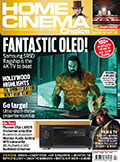 |
Home Cinema Choice #351 is on sale now, featuring: Samsung S95D flagship OLED TV; Ascendo loudspeakers; Pioneer VSA-LX805 AV receiver; UST projector roundup; 2024’s summer movies; Conan 4K; and more
|
